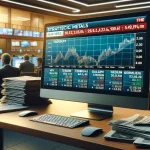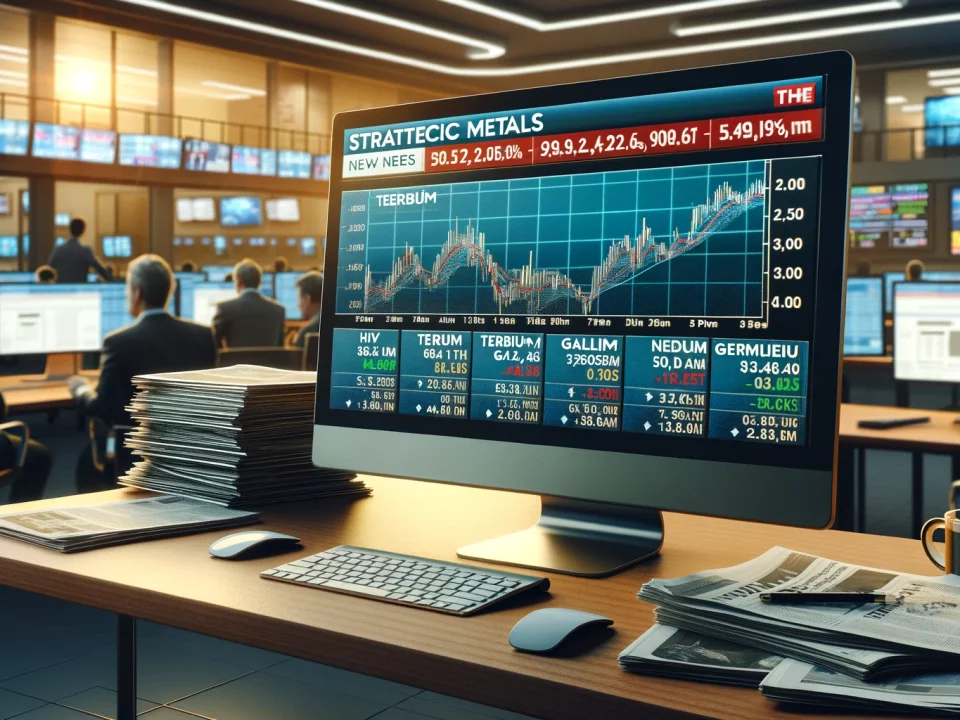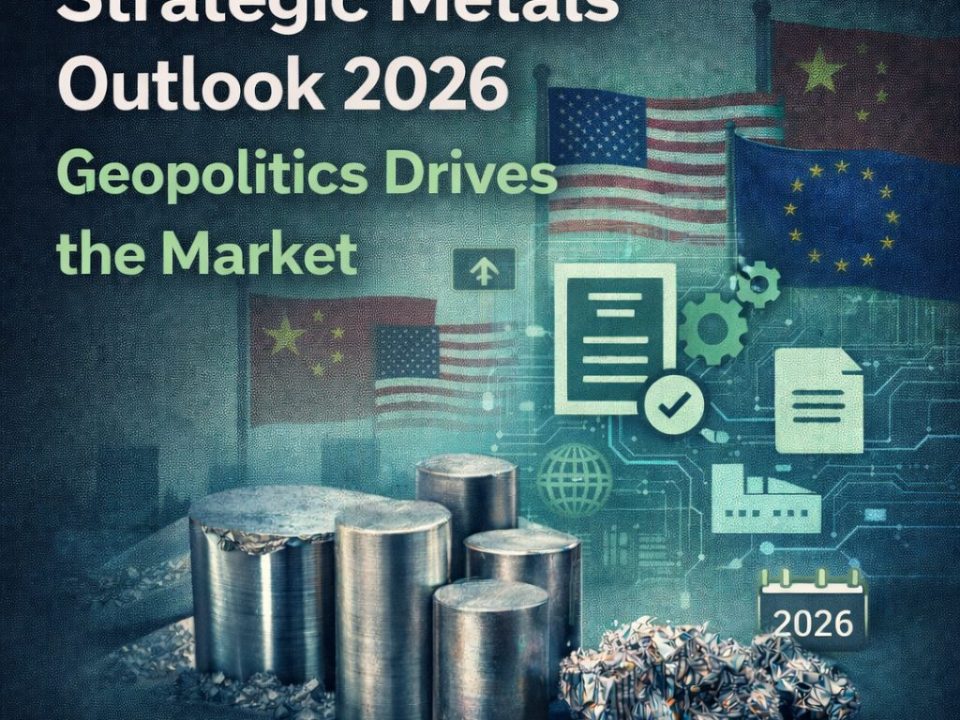
Weekly News Review May 27 – June 2 2024
June 2, 2024
Weekly News Review June 10 – June 16 2024
June 16, 2024Welcome to our weekly news review.
SOUTH KOREA AIMS TO BOOST TRADE WITH AFRICAN COUNTRIES:
The East Asian country held a summit with 48 African nations in Seoul last week.
This week, South Korea will host 48 African nations and delegations at a summit in Seoul, seeking to boost trade, investment, and diplomatic ties. The 2024 Korea-Africa Summit will be held under the theme “The Future We Make Together: Shared Growth, Sustainability, and Solidarity.” Key topics include critical minerals, as the African continent holds vast resources, such as cobalt, gold, or platinum. According to Cho Tae-yul, chairman of the summit, the African Continental Free Trade Area encompasses 1.4 billion people and a combined GDP of $3.4 trillion, spread over 54 countries, presenting a significant market and an attractive trading partner. Several agreements are expected to be signed during the summit and side events.
High-Tech – Low Mining
South Korea’s high-tech industry is fueled by critical minerals needed to manufacture semiconductors, electric vehicles, and other modern products. It recently announced a significant investment of $19 billion over the following years in its semiconductor industry. However, East Asian countries are highly dependent on imports as they lack natural deposits and are continuously trying to diversify their supply chains. Last month, a South Korean company secured rights to three rare earth mines in Vietnam, for example.
The Race for Africa’s Resources
However, South Korea is one of many African countries vying for influence. The European Union and the United States have announced plans to source more critical minerals from the continent to diversify their supply chains away from industry giant China. Yet, the People’s Republic is also ramping up investments in Africa through the Belt and Road Initiative, under which China has already spent over $1 trillion in projects worldwide. The quest for Africa’s resources has also received criticism: an article in the journal Resources Policy argues that it produces significant socio-ecological impacts for communities close to mineral deposits and threatens the continent’s biodiversity. The authors advocate sustainable and responsible mining in Africa to prevent these issues.
NORWAY REPORTS EUROPE’S LARGEST DEPOSITS OF RARE EARTHS:
New exploration results presented.
One and a half years after what is believed to be Europe’s largest rare earth deposit was discovered in Sweden, neighboring Norway is following suit. The Fen deposit in the country’s south contains around nine million tons of rare earth oxides, as Rare Earths Norway announced Thursday. Fen has been explored over the past three years, and the initial estimate of the size of the deposit that has now been presented is promising, commented the geological consultant for the region.
Rare Earths Norway has announced further investigations assessing the project’s economic viability. This is a crucial point, as mining a deposit is only sometimes economically viable, as the raw materials are often only found in low concentrations. Large quantities of material have to be moved. In addition, there are long lead times between initial exploration and actual mining. In addition to multiple permits, the massive amount of capital required is one of the industry’s challenges. It often takes up to 15 years before a new mine can operate.
RARE EARTHS EXPORTS FROM CHINA UP SIGNIFICANTLY IN MAY:
China exported significantly more rare earths in May than in the same period last year. The increase is significant at almost 36% to more than 6,217 tons, as figures from the customs authority show. Exports of this group of raw materials also increased by around 36 percent compared to April of this year.
Reuters attributes this development to the fact that overseas buyers have increased their stocks, among other things. Rare earths are used to manufacture components in wind turbines and electric cars, among other things. China is also reporting positive news from overall exports. According to Reuters, this grew much more strongly than expected in May as demand from abroad increased. However, imports are growing more slowly, indicating that domestic demand is still weak.
UNTAPPED POTENTIAL IN DEVELOPING AND EMERGING COUNTRIES:
Analysis by the World Bank shows how strongly the policies of major economies influence trade flows.
Critical minerals for the energy transition, such as lithium, nickel, and rare earths, are experiencing an unprecedented surge in demand due to global climate protection targets. This could open up new opportunities for resource-rich developing countries, particularly in Africa. However, an analysis by the World Bank shows much-unexplored potential here. Domestic policy measures of large economies such as the United States significantly influence where foreign direct investment flows. The policies of these major players also strongly influence trade flows.
For example, the U.S. Inflation Reduction Act (IRA) benefits countries linked to the United States through free trade agreements like Canada and Mexico. Since the adoption of this legislative package in 2022, U.S. investments in these countries’ raw material value chains have increased tenfold, from just under one to over ten million dollars, as the study shows.
In contrast, only around five times as much was invested in countries without free trade agreements, which is hardly surprising, as free trade zones stand for fewer tariffs and the removal of further trade barriers. In addition, there is a risk that investments could be withdrawn from developing countries rich in natural resources. According to the World Bank, these nations could be essential suppliers for the energy transition and, in turn, increase their economic output.
China, meanwhile, has long been active in this area and invests enormous sums in the infrastructure of other countries as part of its Belt and Road Initiative, also known as the “New Silk Road,” often securing access to raw materials in return. It is questionable whether Western players, such as the EU with its Global Gateway program, will be able to catch up, even if the greater participation of developing and emerging countries in green value chains has long been recognized as a necessity and initial steps have been taken.
SOUTH KOREA SIGNS MULTIPLE AGREEMENTS WITH AFRICAN NATIONS ON MINING AND TRADE:
The 2024 Korea-Africa Summit in Seoul concluded successfully.
South Korea hosted leaders and delegations from 48 African countries over the last two days for the inaugural Korea-Africa Summit, seeking to boost diplomatic ties and trade relations and explore investment opportunities. According to the South Korean Ministry of Trade, Industry, and Energy, almost 50 deals and agreements were signed during the summit.
Agreements on critical minerals have been signed with Ethiopia and Tanzania. South Korea’s main agenda of the summit was to establish new sources to supply its high-tech industry. While East Asia is a significant player in the global semiconductor industry, it needs more deposits for critical minerals. It is highly import-dependent, mainly on industry leader China.
Minerals for Modernization
In return, South Korea pledges to invest billions in the African continent: during the summit’s opening ceremony, President Yoon Suk Yeol announced 24 billion in aid and investment support. In addition, South Korean companies will modernize the infrastructure, such as the motor manufacturer Hyosung Heavy Industries, which will enhance Mozambique’s power grid.
The ministry expects the investments and agreements to yield additional cooperation between South Korea and the African nations in the future, boosting supply chain diversification and competitiveness.
Besides Africa, South Korea also looks elsewhere for partners to diversify its supply chains. For example, a South Korean company recently secured rights to three rare earth mines in Vietnam, and the Asian country’s Export-Import Bank invested millions in the Australian rare earth miner Arafura.






